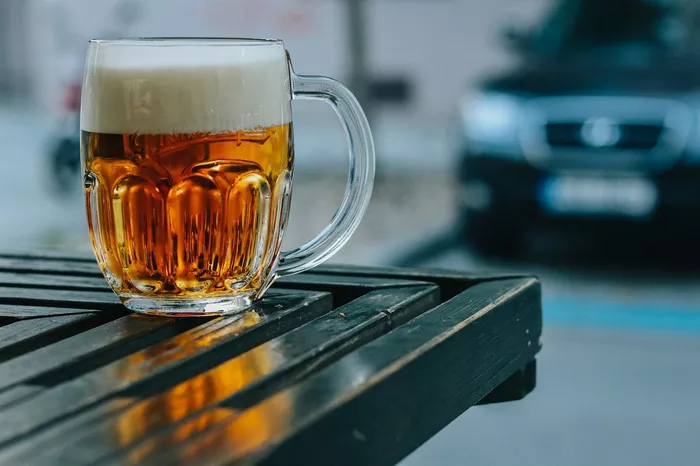Alcohol consumption has been ingrained in human culture for centuries, often serving as a social lubricant and a means of relaxation. However, the line between moderate and excessive drinking can easily blur, leading to potential health risks and adverse effects. The question “how many beers a night is too much” is crucial in understanding the limits of responsible alcohol consumption. This article aims to delve into this question, exploring the factors that determine safe drinking limits, the risks associated with excessive beer consumption, and strategies for maintaining a healthy relationship with alcohol.
Defining Moderate Drinking
Understanding what constitutes moderate drinking is essential when evaluating how many beers one can consume in a night without entering the realm of excess. Moderate drinking is typically defined as consuming alcohol in a manner that doesn’t lead to intoxication or negative health consequences. According to health guidelines, moderate alcohol consumption generally refers to up to one drink per day for women and up to two drinks per day for men. When considering beer specifically, a standard drink is often equated to a 12-ounce beer with an alcohol by volume (ABV) of around 5%.
Factors Influencing Safe Limits
The amount of beer one can consume in a night without adverse effects varies based on several individual factors. Body weight, metabolism, tolerance levels, age, and overall health play significant roles in determining one’s alcohol tolerance. For instance, a person with a higher body weight might be able to process alcohol more efficiently than someone with a lower body weight. Similarly, age-related changes in metabolism can affect alcohol tolerance, making older individuals more susceptible to the effects of alcohol even with the same quantity consumed. Therefore, while general guidelines exist, individual differences must be considered when assessing safe drinking limits.
Health Risks of Excessive Beer Consumption
Consuming an excessive amount of beer in a single night or over time can pose various health risks. Excessive alcohol intake not only affects the liver but also impacts the cardiovascular system, the brain, and overall mental health. Chronic heavy drinking can lead to liver diseases such as fatty liver, hepatitis, and cirrhosis. Moreover, it can elevate blood pressure, increase the risk of heart disease, and contribute to an array of mental health issues including depression and anxiety.
How many beers a night is too much? The answer lies in the long-term effects of excessive alcohol consumption. Excessive beer intake not only affects physical health but also impairs cognitive functions, leading to impaired decision-making, memory loss, and reduced motor skills. Binge drinking, defined as consuming a large quantity of alcohol within a short period, significantly heightens the risks of accidents, injuries, and alcohol poisoning, often requiring immediate medical attention.
Recognizing Problematic Drinking Patterns
Understanding when beer consumption crosses the line from moderate to excessive is vital in recognizing problematic drinking patterns. Signs of problematic drinking include an inability to control the amount of alcohol consumed, neglecting responsibilities due to drinking, developing a tolerance that requires more alcohol for the same effect, and experiencing withdrawal symptoms when not drinking. These behaviors indicate a potential alcohol use disorder that requires professional intervention.
Setting Limits and Maintaining Control
Establishing personal limits and strategies to maintain control over alcohol consumption is crucial in preventing excessive beer intake. Keeping track of the number of drinks consumed, setting a specific limit before starting, and alternating alcoholic drinks with water or non-alcoholic beverages can help regulate alcohol intake. It’s also essential to pace oneself while drinking and avoid succumbing to peer pressure or social expectations regarding alcohol consumption.
Educating oneself about the effects of excessive drinking and being mindful of individual tolerance levels can aid in making informed decisions about alcohol consumption. Seeking support from friends, family, or professionals in case of concerns about drinking habits is crucial for maintaining a healthy relationship with alcohol.
Seeking Help and Support
If an individual finds it challenging to adhere to moderate drinking habits or suspects they may have an alcohol use disorder, seeking help and support is paramount. Professional assistance from healthcare providers, counselors, or support groups can offer guidance and resources to address problematic drinking habits. Treatment options, including therapy, behavioral interventions, and support networks, are available to assist individuals in managing and overcoming alcohol-related issues.
Conclusion
The question of “how many beers a night is too much” doesn’t have a one-size-fits-all answer. Safe drinking limits vary based on individual factors, and moderation is key to avoiding the potential health risks associated with excessive beer consumption. Understanding personal limits, recognizing problematic drinking patterns, and seeking help when needed are essential steps in maintaining a healthy relationship with alcohol. By being informed and mindful of one’s alcohol intake, individuals can enjoy beer responsibly while prioritizing their well-being and overall health.


